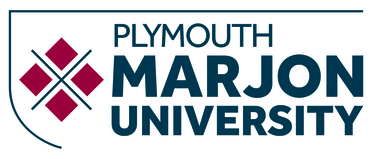Educational Isolation and the challenge of ‘place’ for securing and sustaining a quality teacher supply
Ovenden-Hope, Tanya, Passy, Rowena and Iglehart, Philly (2022) Educational Isolation and the challenge of ‘place’ for securing and sustaining a quality teacher supply. In: The Palgrave Handbook of Teacher Education Research. Palgrave Macmillan, pp. 1-22. ISBN 978-3-030-59533-3
|
Text
Educational Isolation and the challenge of ‘place’ for securing and sustaining a quality teacher supply.pdf - Draft Version Restricted to Registered users only Download (356kB) | Request a copy |
|
|
Image
Educational Isolation and the challenge of ‘place’ for securing and sustaining a quality teacher supply Fig.1.pdf - Draft Version Restricted to Registered users only Download (59kB) | Request a copy |
|
|
Text
Educational Isolation and the challenge of ‘place’ for securing and sustaining a quality teacher supply-PUB.pdf - Published Version Restricted to Repository staff only Download (338kB) | Request a copy |
Abstract
Educational Isolation, conceptualized by Ovenden-Hope and Passy, identifies three combined elements experienced by schools that limit their access to the resources necessary for school improvement; geographical remoteness, socioeconomic deprivation and cultural isolation. Educationally isolated schools are typically located in deprived coastal, rural and ex-industrial areas in England. School performance of Educationally Isolated schools has been consistently lower than for urban schools with similarly socioeconomically deprived communities. The focus of education policy until recently on supporting schools in densely populated urban areas, such as The London Challenge, alongside urban schools’ geographical connectedness and cultural opportunities, helps understanding of differences in school performance caused by place. This chapter explores the challenges of place for securing and sustaining quality in teacher supply in England. Educational Isolation is used as the framework for examining the way in which a school’s location can limit its access to a quality workforce. The notion of ‘quality’ in teaching is discussed in relation to the recruitment, professional development and retention of teachers in Educationally Isolated schools. The increasing number of unqualified teachers (and school leaders) in state funded schools in England, 25078 in 2019, with a higher proportion in Educationally Isolated schools, is examined. The chapter concludes by demonstrating a relationship between place and securing and sustaining a quality teacher supply, and the need for the government in England to devise policies that enable equitable school access to resources for school improvement regardless of their place.
| Item Type: | Book Section |
|---|---|
| Keywords: | Educational Isolation, Teacher Recruitment, Teacher Retention, Quality Teaching, Teacher Supply. |
| Depositing User: | Ms Raisa Burton |
| Date Deposited: | 28 Oct 2021 10:32 |
| Last Modified: | 22 Apr 2022 11:02 |
| URI: | https://marjon.repository.guildhe.ac.uk/id/eprint/17664 |
Actions (login required)
 |
Edit Item |

